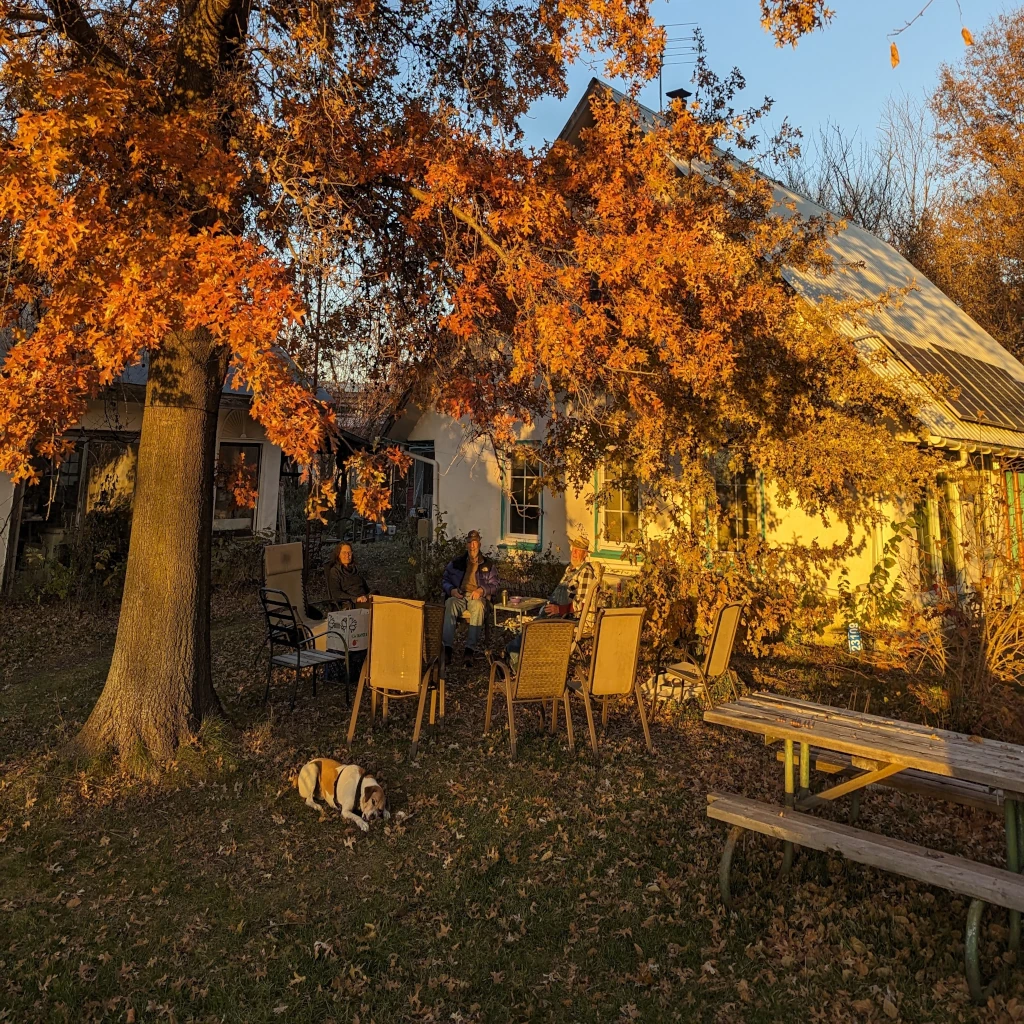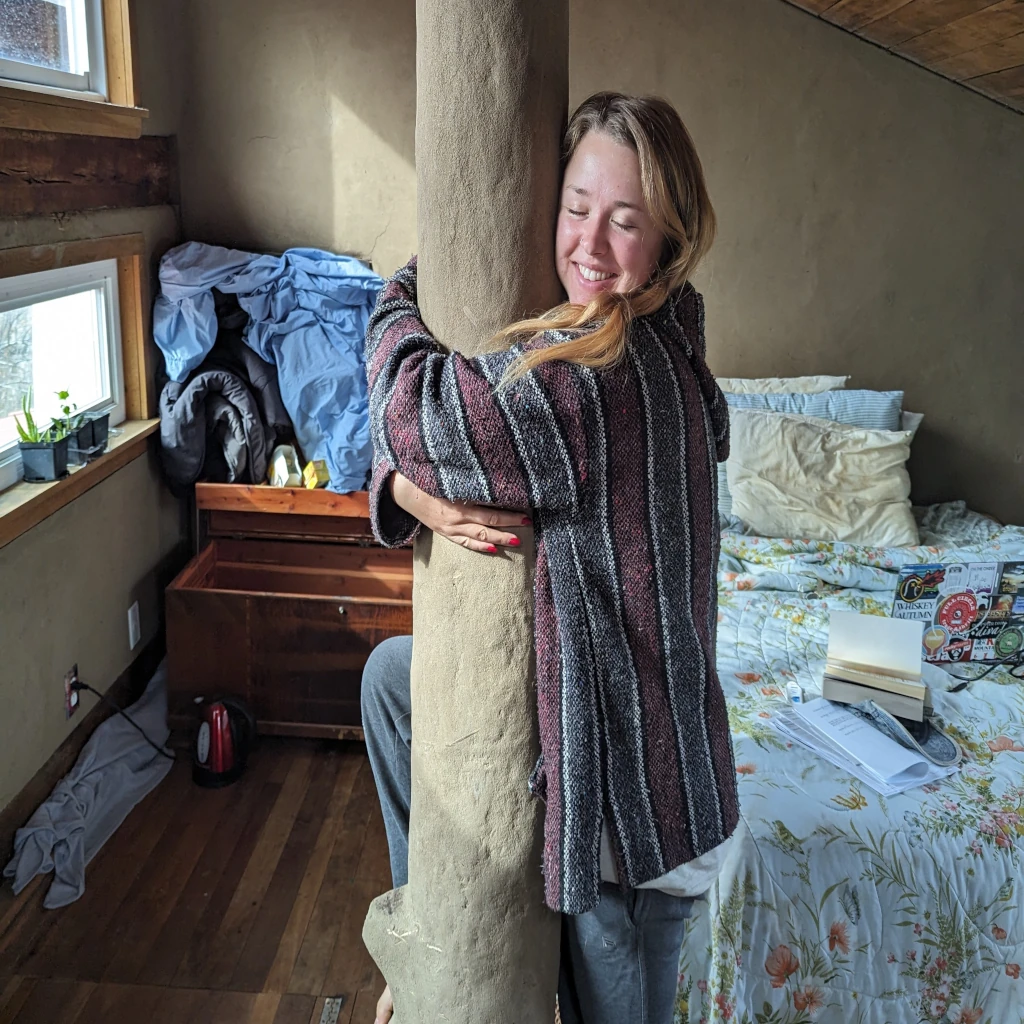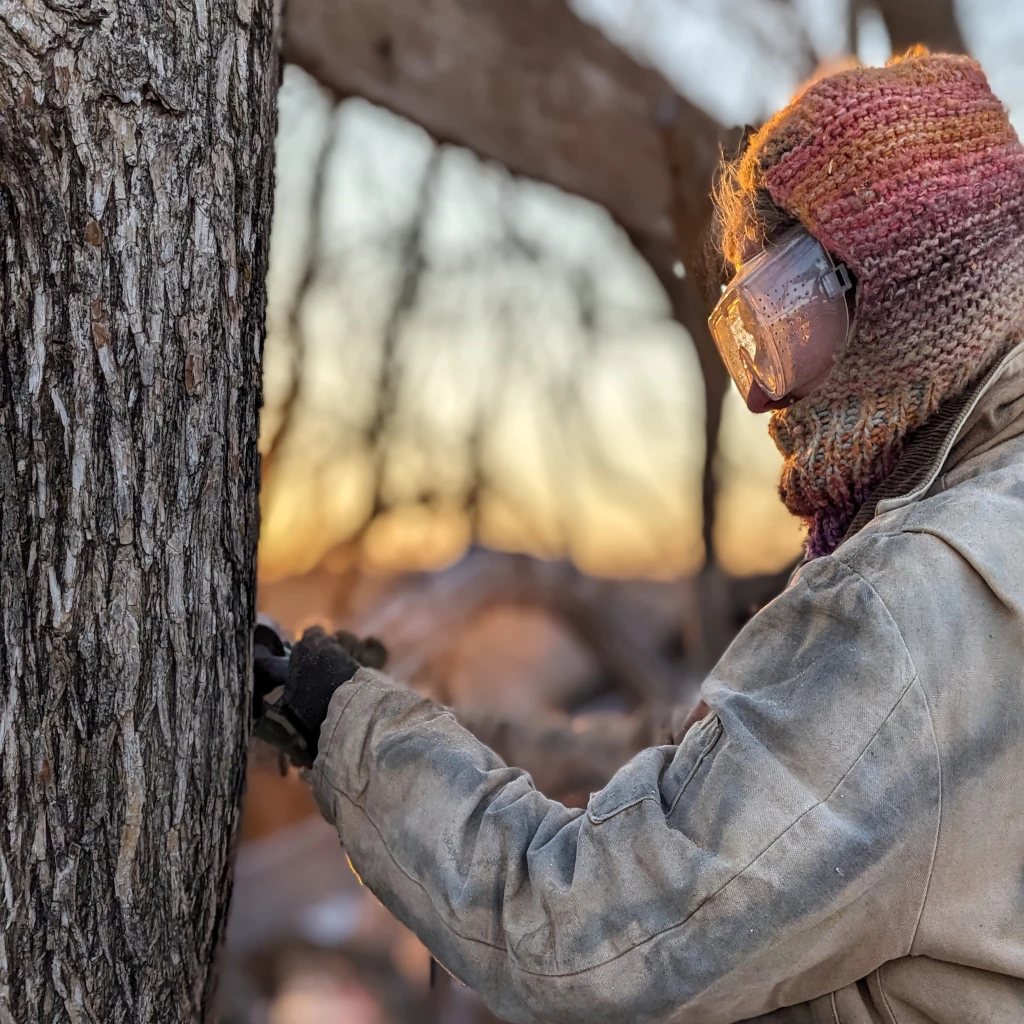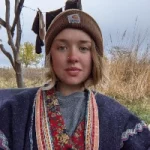As we bring the summer sun inside with us to be enjoyed in the form of firewood and fall harvest, I feel inspired to share a piece I first wrote for our annual Land Day celebration in 2022. Then, it was read aloud beneath the branches of an oak tree that Kurt, our oldest member, saved from construction equipment 20 years ago, placing his body over the nascent tree. Today the tree arches over Milkweed Park to shelter Kurt as he hosts his late-afternoon Happy Hour, creating shade for peaceable banter at the end of a long day and keeping everyone alert by dropping acorns on their heads.
This piece originally followed a history of the land written by our resident anthropologists Daniel and Tails, but today I am just letting it stand on its own, as a prayer of gratitude for the land, and as an open question to all nonindigenous persons occupying settled land.
-Emeshe

This community inhabits land that is entangled with the brutal history of colonialism, forced removal, and genocide. For most, if not all of us, this land is not our ancestral homeland. And, many of us have been raised with the common narrative that land is a commodity, a curiosity, or an inert thing made valuable only by human intervention.
These beliefs and this history stem from a dominating culture that does not respect the land, nor does it respect people who respect the land. It is my hope that by living our lives at Dancing Rabbit, we are actively resisting this culture and the practices it has brought with it. That we are entering into a different relationship with the land, and are reaffirming our connection to the earth that holds us.
We live at a time when much of the world’s land has been enclosed, privatized, and made inaccessible to the majority of people. When vast swaths of land have been poisoned, paved, burned, covered in houses, filled with trash, riddled with oil wells, over-farmed, or put at risk of complete ecological breakdown due to sea level rise, drought, and extreme heat. In this context we are incredibly lucky to have this land. To have a place which is still green, which is still safe, which is still peaceful, which is still verdant, which can still grow and support life.

It is an immeasurable gift to own land. Yet the land does not know that it is owned. The land is alive and dynamic. This land holds us, and this land accommodates us. If we care for it, it will care for us. If we put work into it, it will put work into us. If we heal the land, the land will heal us.
Just as breathing polluted air causes illness, breathing clean air is healing. Just as listening to sirens and traffic shocks the nervous system, listening to bird and cricket songs soothes it. Spending time with green and growing things is healing. Being surrounded by trees is healing. Spending time in the sun is healing. Looking at the stars is healing. This land is a healer, and today we give thanks for this service.
May we live in gratitude to this land and may we work to repay its generosity. May we see ourselves in equal relationship with the land, beyond the paradigm of owner and owned. May we be caregivers to the land and may we receive its care. May we receive its beauty each day and use it as an affirmation that in working for the preservation of land we are working for the right thing. May we see the land as a community member with a fate that interlocks with our own. May we see that we don’t just perceive the land, the land perceives us. May we see that we don’t just breathe the air from the trees, the trees breathe us. May we be in right relationship with the soil, the water, the grass, the wildflowers, the spiders, the draws, the swallows. May we see that they are sacred and precious, finite and infinite, connected to the source of all life, just like us.

To close, I will call in the names of those who inhabited this region before colonization using their endonyms, or names they gave themselves, rather than the titles given by European settlers:
-
- Wahzhazhe – Children of the Middle Waters
-
- Bahkhoje – People of the Gray Snow
-
- Jiwere – People of This Place
-
- Nutachi – People of the River’s Mouth
-
- Inoka – Confederacy of 12 Tribes
I will also call in the names of those who lived in this place for a time after being displaced from the east, only to be forcibly moved once more.
-
- Shawnee – Those of the South
-
- Lenni Lenape – The Original People
-
- Kickapoo – Those Who Walk the Earth
-
- Meskwaki – People of the Red Earth
Today, their descendents live in diaspora, some on reservations in colonial Oklahoma, Kansas, and Nebraska.
May we hold in regard all beings. May we right past wrongs. May we use our human capacities to regenerate rather than destroy.

Emeshe Amade works for the DR nonprofit on issues of diversity, inclusion and equity. We appreciate her work in these areas, helping us to be accountable and knowledgeable community members.
